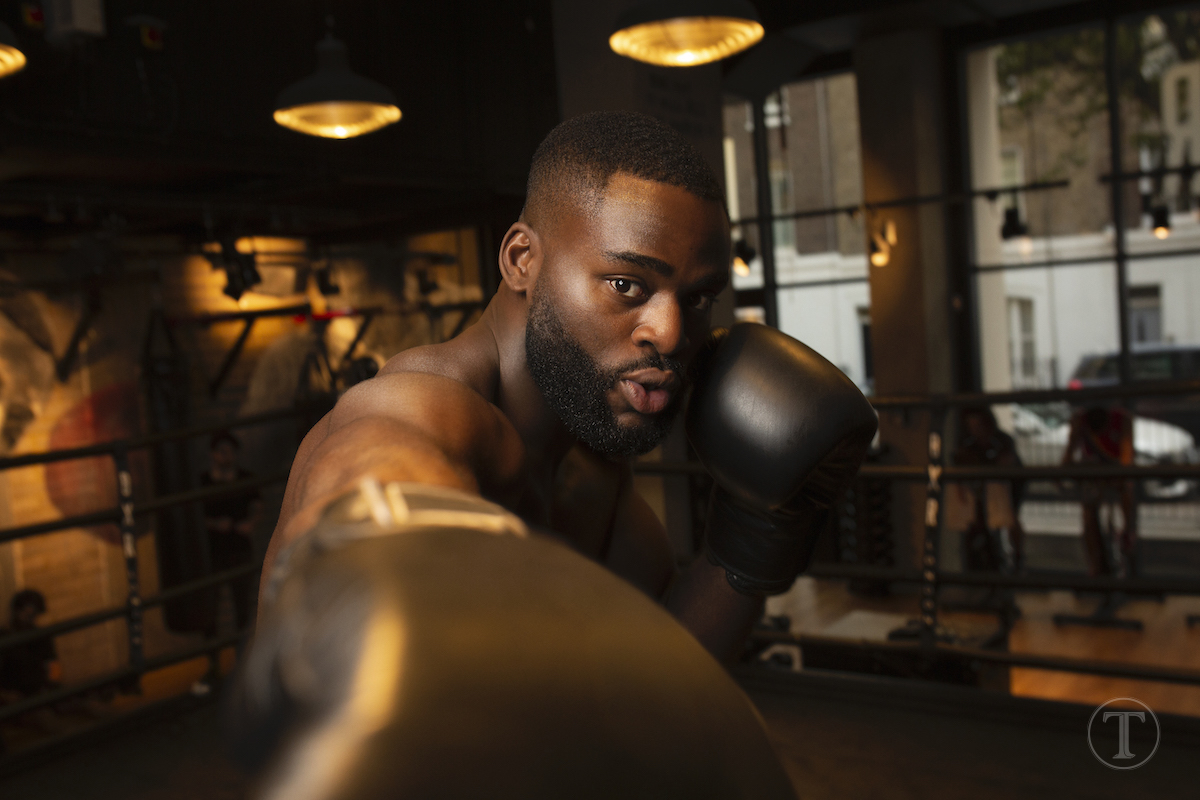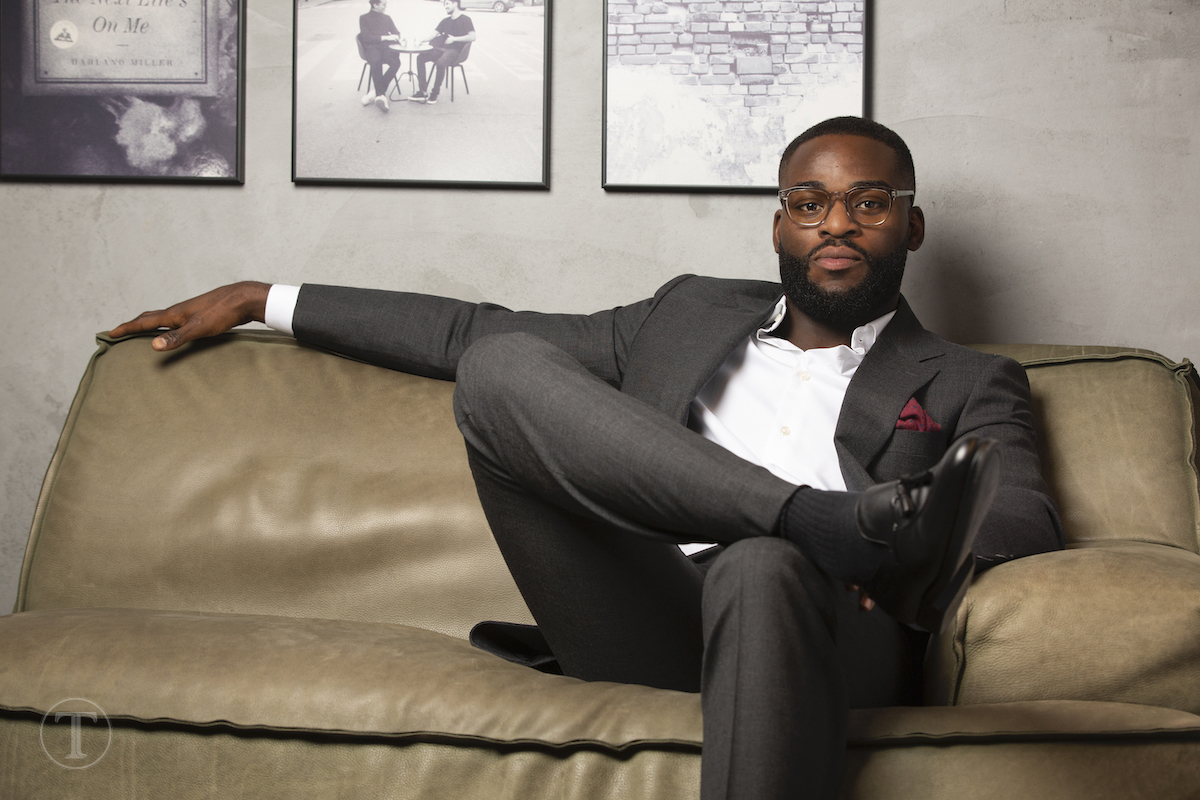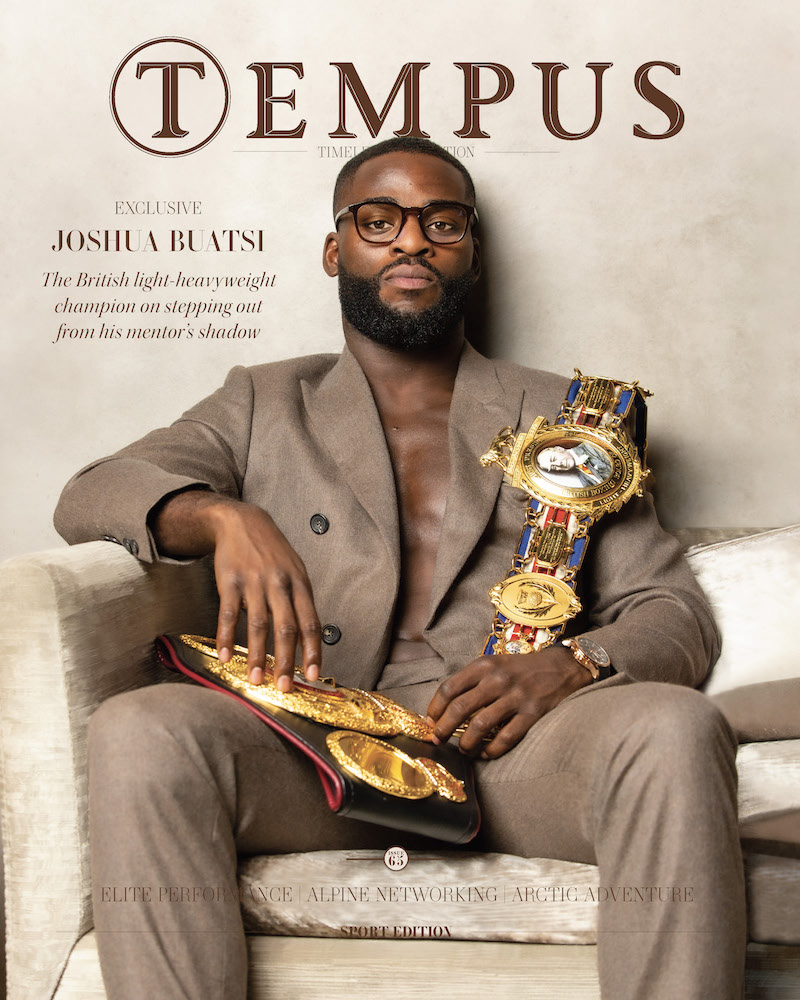This website uses cookies so that we can provide you with the best user experience possible. Cookie information is stored in your browser and performs functions such as recognising you when you return to our website and helping our team to understand which sections of the website you find most interesting and useful.
Exclusive: British light-heavyweight champion Joshua Buatsi tells Tempus about stepping out from Anthony Joshua’s shadow
By Michelle Johnson | 4 December 2019 | Sport
In our cover photoshoot and interview, the boxer talks plans for world domination and how he developed his winning philosophy

Joshua Buatsi is the definition of today’s gentleman boxer. In the ring, the undefeated, 26-year-old British light-heavyweight champion is a force to be reckoned with; calculated power meeting explosive force. It’s this awesome combination that saw him take a bronze medal at the Rio 2016 Olympic Games before being snapped up by Anthony Joshua’s management team (after a brief bidding war with American promoter Floyd Mayweather) and launched into professional boxing in July 2017.
Incredibly, Buatsi won the British light-heavyweight belt on 31 March this year, less than two years after going pro. But off-duty Buatsi exudes confidence, warmth and charisma, whether stopping for selfies with sports fans who recognise the rising star during our shoot at BXR London, or speaking of his current success with a pragmatic wisdom that belies his youth.
“People call me humble,” he tells Tempus. “But let’s be real; when a man has nothing it’s easy to be humble and to talk quietly. Right now, I’m British champion, I’m highly ranked, but I haven’t made it yet. Talk to me in two years and let’s see if I’ve still got the same energy. Then you can judge my character.”
In this excerpt from our exclusive interview, Buatsi tells Tempus how his sport keeps him humble, and how he plans to dominate the business of boxing. See the full photoshoot and interview in Tempus Sport Edition, available now.
How would you describe your philosophy as a fighter?
That’s quite a hard one. As fighters, we always want to fight, and the name of the game is to hit and not get hit. This is what I’m doing day in, day out, and I’m constantly trying to improve my skills. I think it’s common to be a pressure fighter – to stand toe to toe and try to hit the other guy as many times as possible – but I think the real skill and discipline is learning to hit your man when he’s not ready to engage; to disengage all interaction. I’m obsessed with improving my craft and learning how to get hit less often while dishing out the punishment. There are a lot of talented fighters that are more advanced than I am, but when I get into the ring I find a way to win. And I always say a prayer. I get on my knees and say, ‘God, for all the wrongs I’ve done, forgive me. But as I go into this fight, I need you to help me’. For me, every fight has always been serious, but now I’m at the level where the stakes are higher. I want to make sure that each fight is highly anticipated, that I’m putting on a show – and then making sure I do good things with the success that comes with winning. >>

What’s been the biggest challenge you’ve faced since turning pro?
I think it was moving from amateur to pro. Amateur boxing is a sport; professional boxing is a business. If you’re signing a contract, you need to understand the money involved. I learned a lot very quickly. The first thing I did was phone my dad, who had drummed education into my sister and me from a young age, and he advised me to go to university. So I studied sports science business management, because I knew I had to understand my business. It helped me a lot, and some of my teachers still come to my fights.
Was there a moment that you remember when it all changed for you?
Honestly, I think the thing that pushed me into the second gear was my fourth fight as an amateur, which was the first time I’d ever lost. It took losing that fight to understand how serious boxing was to me. Winning bronze at the Olympics also made me realise I had something, and could compete on an international level. Every fight was a hard fight, and I couldn’t pretend winning was a fluke at that level. When I won that medal, I felt like I had something tangible to show people after years of hard work, to show that my goals and aspirations were beyond being number one in just my own country. And then from winning my professional debut to winning the British title, I’d shown that within two years I could be the best in Britain at my weight. So now I’m looking for other moments where I can say, okay, this is another first for me. The one thing I never think about is losing. It’s not something I’m familiar with. But the other thing boxing teaches you is to be humble and not to brag or over-celebrate – you have to look for the next improvement.
How does boxing teach you to be humble?
I think you develop a sense of true confidence, »not empty bravado. I don’t need to brag to seem bigger or scarier, because I know what my body can do. Boxing has taught me how to be calm. It also makes me feel like I need to help people who are more vulnerable – I have been known to intervene in robberies, or break up fights or bullying outside of the ring. It’s mad how much I’ve learned from boxing. It gives you a mentality and way of life that’s not just about what you do in the ring.
It’s harder getting used to fans, who can be a bit fickle when there are negative reports about you, but that’s part of life. People are opinionated. Before boxing, I thought the loudest man in the room was the strongest. Now, I’m happy to be the quiet guy in the background, because I know what I’m capable of. Even in the ring, I’ll be happy to win but I don’t ever want to celebrate the fact that I’ve hurt another person. You’re always one punch away from getting knocked out: boxing can humble anyone.
You’ve been compared to your manager, Anthony Joshua. How do you respond to that?
Personally, I think there’s a risk that comparing myself to other successful people can bring me down. My theory is that it’s good to benchmark other people’s successes, but never to compare yourself. So I think, okay, this person had this great fight at this specific point in their career – am I in the same place or do I have to work harder to get there? I let that inspire and motivate me. It’s like a company examining a bigger brand’s growth in the same marketplace. If I’m doing well, I could brag about it, or I can look at other athletes and see their success and let it motivate me further. I’m so grateful for all that I have and what I’ve achieved.
See the full photoshoot and interview in Tempus Sport Edition, available now.
Joshua Buatsi shot exclusively for Tempus Magazine at BXR London. Photography by Michael Shelford, styling by Thomas Mwadime.








